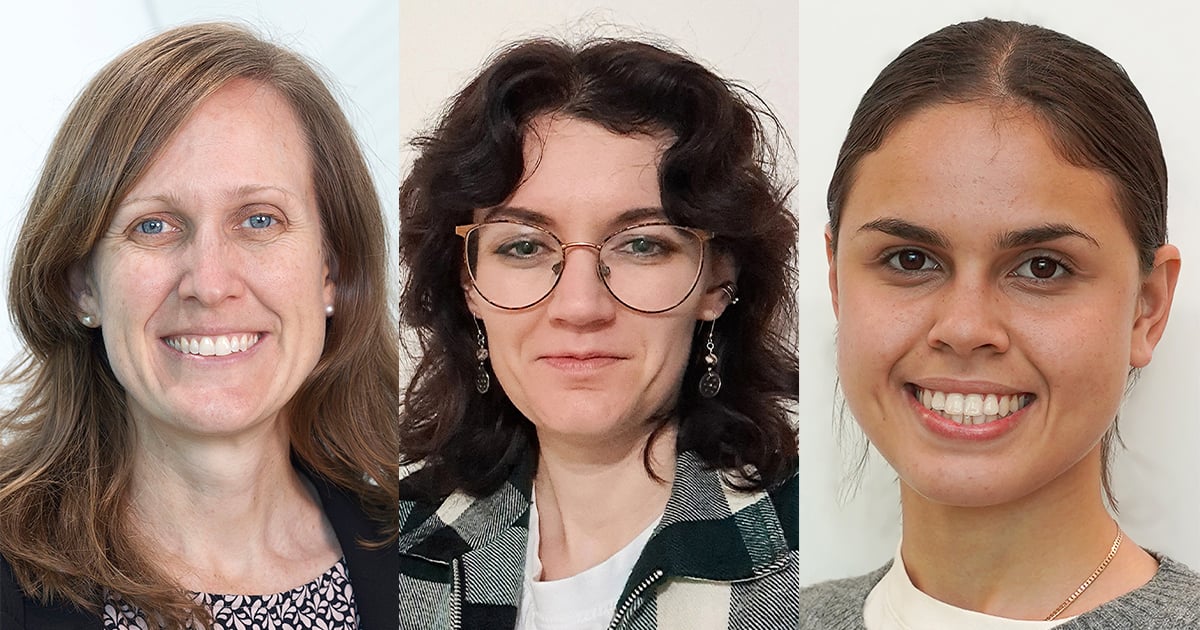Search

News & Events
Triple triumph for The Kids at 2025 Premier’s Science AwardsThree researchers from The Kids Research Institute Australia were recognised as being among Western Australia’s brightest and most innovative scientific minds at last night’s 24th Premier's Science Awards.

News & Events
National study to assess impact of social media ban on families and kidsA unique national study to examine the impact of the Federal Government’s social media ban on families is being undertaken by The Kids Research Institute Australia, in collaboration The University of Western Australia and Edith Cowan University.
Research
Predicting Problem Gambling in Young Men: The Impact of Sports Gambling Frequency and Internalizing SymptomsYoung men aged 18-25 years are at disproportionately increased risk for gambling problems compared to their older or female counterparts. The unique mechanisms that precipitate these problems in this group remain unclear. Data from the largest longitudinal cohort study on Australian men's health (the Ten to Men Study) were used to identify the psychosocial, health-related, and gambling-related behavioral predictors of problem gambling severity in 265 young men aged 18-25 years. Hierarchical multiple ordinal logistic regression analyses found these predictors to explain a moderate proportion of variance in problem gambling severity.
Research
Development and temporal validation of a clinical prediction model of transition to psychosis in individuals at ultra-high risk in the UHR 1000+ cohortThe concept of ultra-high risk for psychosis (UHR) has been at the forefront of psychiatric research for several decades, with the ultimate goal of preventing the onset of psychotic disorder in high-risk individuals. Orygen (Melbourne, Australia) has led a range of observational and intervention studies in this clinical population.
Research
Determining the Mental Wellbeing of Family Day Care Educators in AustraliaFamily Day Care (FDC) is an essential service supporting Australian families requiring convenient, versatile, and quality education and care for their children. FDC educators’ mental wellbeing (MWB), often overlooked, is vital to ensure optimal education and care. This study aimed to gauge Australian FDC educators’ MWB and identify factors positively or negatively affecting MWB.
Research
The diagnostic odyssey for children living with a rare disease – Caregiver and patient perspectives: A narrative review with recommendationsChildren living with a rare disease often endure a lengthy journey to diagnosis, commonly referred to as a diagnostic odyssey. This journey significantly impacts their physical, mental and financial wellbeing, in addition to that of their families. The diagnostic odyssey is often characterised by anxiety and stress surrounding the uncertainty of the future. This is experienced by the patient as well as by the family.
Research
What supports are people with intellectual disability living in group homes provided to access health care? A case studyPeople with intellectual disabilities living in group homes often have complex health needs, are high health service users and need support from their service provider to access health services. In Australia, little is known about the types and amounts of these supports.
Research
Understanding and optimising gratitude interventions: the right methods for the right people at the right timeGratitude has consistently been associated with various beneficial health-related outcomes, including subjective wellbeing, positive mental health, and positive physical health. In light of such effects, positive psychology researchers and practitioners have often implemented gratitude interventions in an attempt to build individuals' orientations toward appreciation and thankfulness. Recent meta-analyses and reviews have revealed, however, that these interventions often have mixed effects on gratitude or other health outcomes.
Research
The Polish version of the Perth Alexithymia Questionnaire-Short Form (PAQ-S): psychometric properties and normsAlexithymia is a trait involving difficulties identifying feelings, difficulties describing feelings, and an externally orientated thinking style. It is an important risk factor for a range of psychopathologies, and its assessment is therefore important in research and clinical settings. Originally created in English, the Perth Alexithymia Questionnaire-Short Form (PAQ-S) is a brief 6-item self-report measure of alexithymia.
Research
Who suffered most? Parental stress and mental health during the COVID-19 pandemic in GermanyThis study examines gender and socioeconomic inequalities in parental psychological wellbeing (parenting stress and psychological distress) during the COVID-19 pandemic in Germany. Background: The dramatic shift of childcare and schooling responsibility from formal institutions to private households during the pandemic has put families under enormous stress and raised concerns about caregivers’ health and wellbeing.
